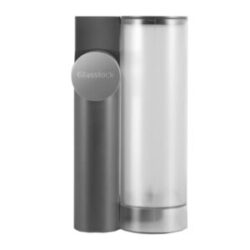4.1 被动语态的构成形式
4.1.1 被动语态的基本时态变化
被动语态通常为十种时态的被动形式, 被动语态由“be+过去分词”构成,be随时态的变化而变化。以do为例,各种时态的被动语态形式为:
 亚马逊导购
亚马逊导购  卑诗省当天新盘
卑诗省当天新盘  读新闻学外语
读新闻学外语
1) am/is/are +done (过去分词) 一般现在时
Visitors are requested not to touch the exhibits.
请访客不要触摸展品。
2) has /have been done 现在完成时
All the preparations for the task have been completed, and we’re ready to start.
任务所有准备工作都已完成,我们可以开始了。
3) am/is /are being done 现在进行时
A new cinema is being built here.
4) was/were done 一般过去时
I was given ten minutes to decide whether I should reject the offer.
我有十分钟时间来决定是否应该拒绝这个议案。
5) had been done 过去完成时
By the end of last year, another new gymnasium had been completed in Beijing.
截至去年年底,北京又新建了一座体育馆。
6) was/were being done 过去进行时
A meeting was being held when I was there.
我在那里时正在举行会议。
7) shall/will be done 一般将来时
Hundreds of jobs will be lost if the factory closes.
如果工厂关闭,将会损失数百个工作岗位。
8) should/would be done 过去将来时
The news would be sent to the soldier’s mother as soon as it arrived.
这个消息一来就会传达给士兵母亲。
9) shall/will have been done 将来完成时(少用)
The project will have been completed before July.
该项目将在7月之前完成。
10) should/would have been done 过去将来完成时(少用)
He told me that his new clothes would have been made very soon.
他告诉我他的新衣服很快就会制作完成。
4.1.2 被动语态的特殊结构形式
1)带情态动词的被动结构。其形式为:情态动词+be+过去分词。
The baby should be taken good care of by the baby-sitter.
保姆应该好好照顾宝宝。
2)有些动词可以有两个宾语,在用于被动结构时,可以把主动结构中的一个宾语变为主语,另一宾语仍然保留在谓语后面。通常变为主语的是间接宾语。
His mother gave him a present for his birthday.
他母亲给他送了生日礼物。
可改为 He was given a present by his mother for his birthday.
3)当“动词+宾语+宾语补足语”结构变为被动语态时,将宾语变为被动结构中的主语,其余不动。
Someone caught the boy smoking a cigarette.
有人抓住那个正在抽烟男孩。
可改为The boy was caught smoking a cigarette.
4)在使役动词have, make, get以及感官动词see, watch, notice, hear, feel, observe等后面不定式作宾语补语时,在主动结构中不定式to要省略,但变为被动结构时,要加to。
Someone saw a stranger walk into the building.
有人看到一个陌生人走进大楼。
可改为A stranger was seen to walk into the building.
5) 有些相当于及物动词的动词词组,如“动词+介词”,“动词+副词”等,也可以用于被动结构,但要把它们看作一个整体,不能分开。其中的介词或副词也不能省略。
The meeting is to be put off till Friday.
会议将推迟到周五举行。
4.1.3 非谓语动词的被动语态
v.+ing 形式及不定式 to do 也有被动语态(一般时态和完成时态) 。
I don’t like being laughed at in the public.
我不喜欢在公众场合被人嘲笑。










